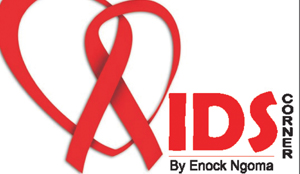This week I received a call from one of the readers of this column who pleaded with me to repeat the following article so as to encourage people to be coming out in the open about how various drugs have worked on them in the treatment of HIV/AIDS.
According to the caller, he says this is important as it will encourage many people to go on treatment, be it conventional or other alternatives such as herbal medicines. I agree with the caller hence I have decided to repeat the article:
 Recently, I got a call from my “old man” Reverend Isaac Mumpashya, the man who is involved in local herbal medicines. He said to me, why don’t you encourage people that have taken herbal medicines and the medication has worked to come out in the open.
Recently, I got a call from my “old man” Reverend Isaac Mumpashya, the man who is involved in local herbal medicines. He said to me, why don’t you encourage people that have taken herbal medicines and the medication has worked to come out in the open.
According to him, this will not only encourage other people to try the herbal medicine but will also encourage government to step-up efforts to carry out trials on the efficacy of these medicines. He adds that even those coming up with various herbal medicines will be encouraged and improve their products.
Well, Rev Mumpashya has a point. The question is do herbal medicines work? If they do, where are the people who have either been cured or at least assisted by the herbals? Rev Mumpashya who produces LOSO, a herbal that improves the immune system and works on many other ailments such as cancer, hypertension, etc.
There are a number of other herbal medicines that have become household names in Zambia such as the Sondashi Formula 2000 (SF 2000), Mailacin and Mayeyacin which all underwent clinical trials. The owners of these drugs say that their medicines work wonders as they are able to treat HIV.
In this very column, I have written about some few people who claimed that after using the SF 2000 or the Mailacin, they were now testing negative for HIV. These people came to me with clinical proof, with documents indicating when they were first diagonised with HIV and the subsequent HIV tests they have taken including at Nkanza laboratories with results indicating HIV negative.
But these few people did not want their full identities published for one reason or another. Now, imagine if these people openly identified themselves, have their names and addresses published, how much impact this would have.
I have no doubt that herbal medicines, especially when taken side-by-side with other conventional interventions such as ARVs, can also play an important part in the fight against HIV, particularly in efforts to find the cure.
I would also want to emphasise that not only those taking herbal medicines should come out in the open to encourage others to go for treatment, even those taking antiretroviral drugs (ARVs) should also be doing the same. There are many people who have been on ARVs for many years and their CD4 count has remained high while their viral load has remained undetectable. These are the success stories that I am talking about. These could also discuss the challenges, side effects, etc that they encounter or have encountered in the period that they have been on ARVs.
There are many out there who are either stigmatised or they just fear to go for HIV testing due to various reasons including myths. These are the people that lack appropriate information on HIV/AIDS and who can best assist these people than those living with HIV?
Before I pen off, I want to thank AVAC (an American organisation that deals in issues of research on HIV) and the Zambia Institute of Mass Communications (ZAMCOM) for involving the Media Network on Health and Development by introducing monthly Media Cafes where experts discuss issues pertaining to HIV/AIDS and other health issues.
One such meeting was held at ZAMCOM Lodge in Lusaka on Tuesday March 10, 2015, where some medical experts from the University of Zambia and from the Centre for Infectious Disease Control in Zambia (CIDRZ) discussed research surrounding HIV/AIDS. They discussed the various stages of conducting clinical research. It was also learnt that the recently announced results of a research called FACTS 001 indicated that it was a successful trial as it provided good information “we should stop using vaginal gels in their normal lives.”
FACTS 001 was a trial of a tenofovir-based vaginal microbicide gel to be used before and after sex among young women in South Africa. But the result indicated that the gel cannot work effectively to prevent HIV. Once again thanks to AVAC and ZAMCOM and the media network looks forward to the monthly meetings.
Until next week, I now pen off but you can contact me on knoxngoma@gmail.com or text/call +260955883143






